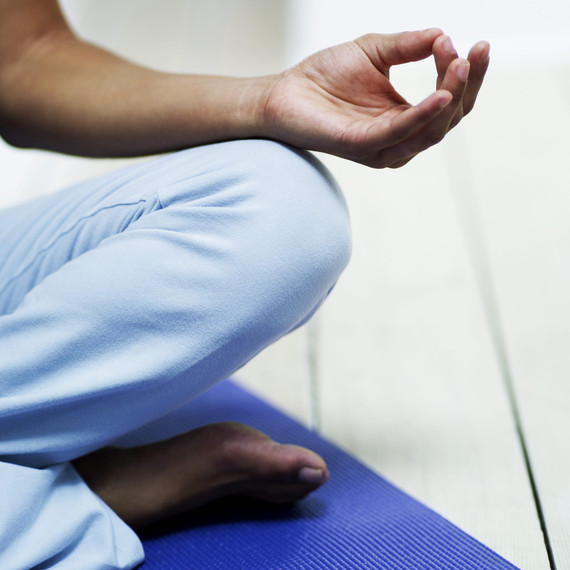In the Ornish Reversal Program we talk about the power of the four elements: Exercise, Nutrition, Stress Management, and Social Support. Each element supports one another to create a strong foundation for health and wellness. Our outcome research has consistently shown that participants experience dramatic decreases in their levels of stress and depression as well as significant improvements in their vitality and quality of life. Now new research is further bolstering our recommendation that combining exercise and meditation improves depression.
We usually associate exercise with amazing benefits such as improvements in strength, aerobic capacity, and weight loss. But we often overlook that exercise can also be a treatment for anxiety, stress and depression, along with counseling and traditional medical therapy to improve symptoms. In fact, physical activity has consistently been associated with feeling more satisfaction with life, better cognitive function, and in many cases it has been shown to be as effective as antidepressants.
A 2006 meta analysis of 11 studies showed that depressed adults who took part in aerobic exercise improved as much as those treated with antidepressants. A 2011 study that looked at 127 depressed people who hadn't experienced relief from SSRIs, a common type of antidepressant, found that exercise helped 30 percent of them to overcome the depression.
Meditation and Exercise
A 2016 study published in the journal Translational Psychiatry by researchers at Rutgers University has now found that by combining meditation and exercise, you can positively impact depression while enhancing brain activity.
Scientists studied a group of men and women who were diagnosed with non-psychotic depression. The subjects were asked to try 30 minutes of focused attention meditation and 30 minutes of moderate aerobic exercise twice a week for eight weeks. The results of this study were impressive, showing a 40 percent reduction in depressive symptoms in both clinically depressed and non-depressed students after eight weeks.
Both exercise and meditation are life long skills, which can cost very little and have few if any negative side effects. While we've known for some time that both exercise and meditation independently have psychosocial benefits, this new study highlights the improved outcomes when two healthy interventions are combined. This follows suit with our multi-element approach in the Ornish Reversal Program and continues to confirm the important benefits of both exercise and stress management.
Here are some basic tips to help exercise be a positive factor in treating stress and depression:
Check with Your Physician
As always first check with your physician to confirm exercise is appropriate for you at this time. Discuss your goal to include exercise as part of your healthy approach, along with any medical or therapeutic treatment they advise.
Find Activities You Enjoy!
If you're including exercise as part of your treatment for depression or anxiety, make sure you actually enjoy what you're doing and the environment is pleasant. Not only will this help your consistency, it will put you in a more positive mood when participating. Exercising to treat stress and depression shouldn't be stressful. If you find it is creating stress, take a step back and discover what changes can you make to include exercise without the stress?
Exercise Three Days Per Week
Consistency is a key to receive the health benefits of exercise and meditation. Moderate intensity exercise is advised.
In our ever busier and stressed-out world, and with cases of depression on the rise, combining these two basic life skills can be a powerful gift to yourself to help keep you healthy both physically and mentally.
What enhanced benefits have you noticed in yourself from practicing this powerful combination?
___________________
If you -- or someone you know -- need help, please call 1-800-273-8255 for the National Suicide Prevention Lifeline. If you are outside of the U.S., please visit the International Association for Suicide Prevention for a database of international resources.
